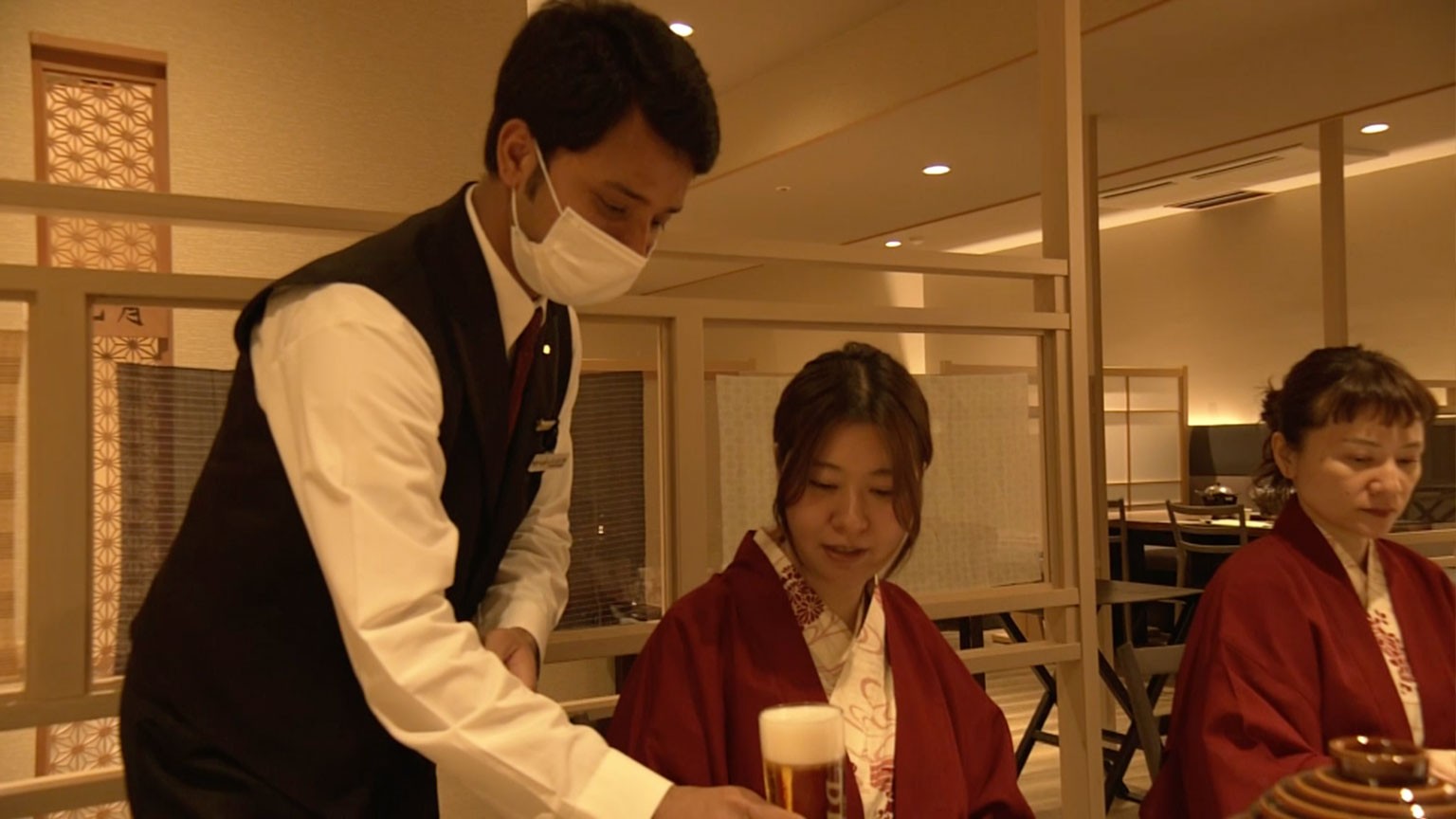Rasel Khan, from Bangladesh, has been working at the Kagaya inn in Ishikawa Prefecture since November 2022.
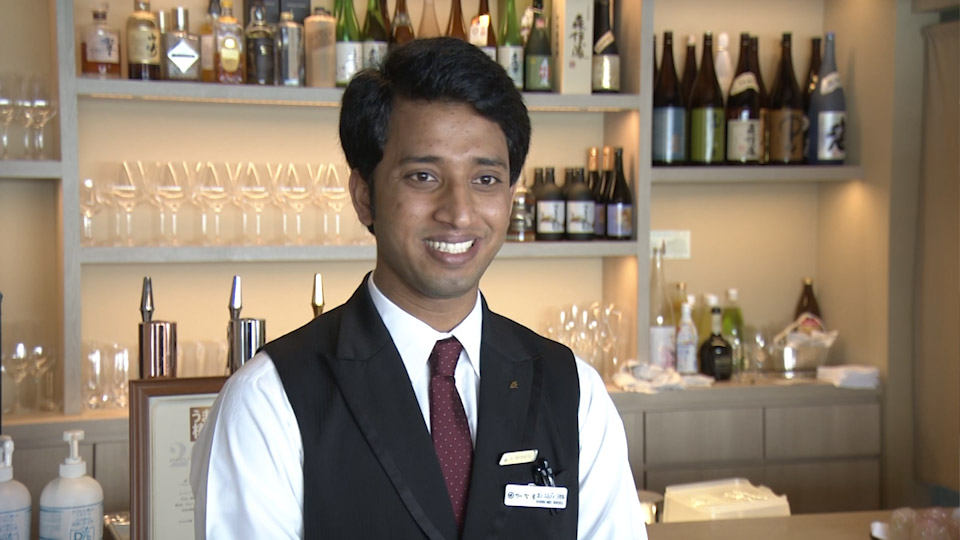
Kagaya is one of Japan's most celebrated ryokan, or traditional inns. It regularly tops a list of best hotels compiled by travel agencies across the country.
As such, guests arrive with the highest expectations.
"I've always wanted to stay here," one guest says. "I've heard Kagaya takes manners very seriously and trains its employees well."
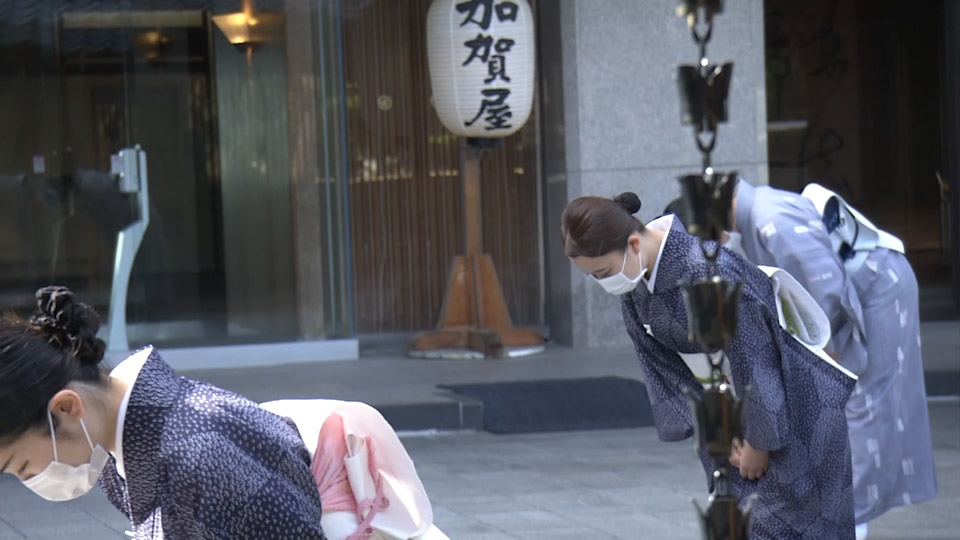
Employment without regard to nationality
More than 30 foreign personnel work for the Kagaya group firm. They are required to learn both the Japanese language and the finer points of omotenashi, or spirit of hospitality.
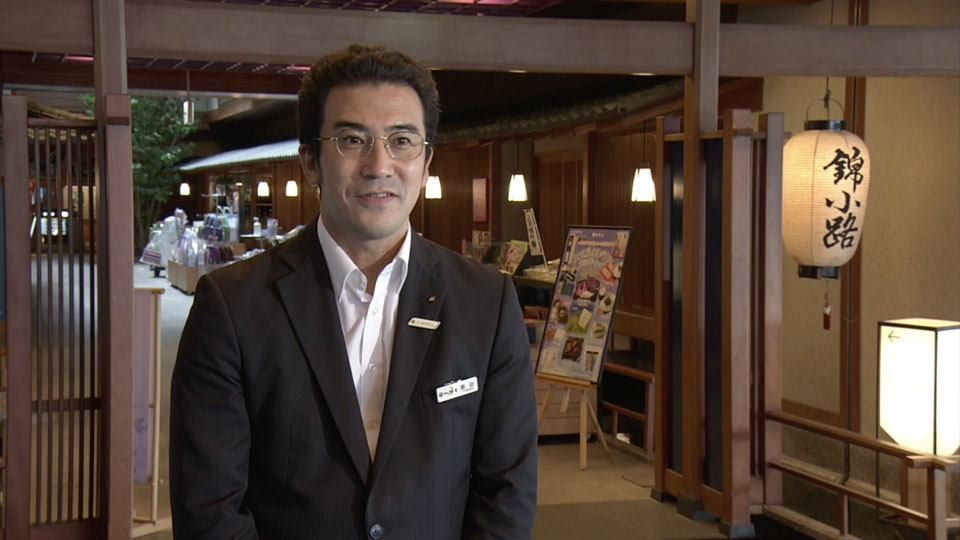
"Staff from overseas put our foreign guests at ease," says Okuda Takehiro, Kagaya's staffing manager. "And their cheerful service creates a relaxed and comfortable atmosphere for Japanese guests, too. In the end, the nationality of the staff doesn't matter, as long as the guests are happy."
Adjusting amid worker shortages
Ryokan do not typically hire non-Japanese staff. But labor shortages are forcing them to adapt.
The industry has long suffered chronic worker shortfalls, but the spread of the coronavirus exacerbated the problem. While hospitality job openings are climbing back to pre-2020 levels, the number of job seekers is not rising at a sufficient rate. Some experts say many former candidates now view the industry as unstable, after it was forced to shut down during the pandemic, and have left it entirely.
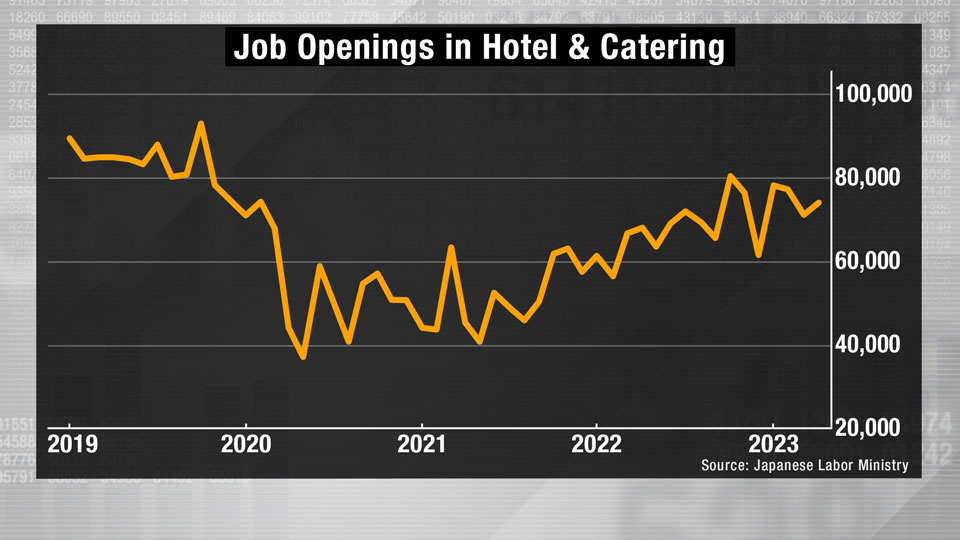
According to a recent survey conducted by Dive, a hospitality industry staffing agency, about 90 percent of hotels and inns nationwide say they are feeling the effects of the labor shortage.
"Specified Skilled Workers"
The government has been trying to alleviate the problem since before the pandemic. In 2019, it introduced the "Specified Skilled Worker" category, a new residence status for foreigners. It was a major shift in the government's policy and was aimed directly at dealing with labor shortages.
Specified Skilled Workers can work in 12 fields designated as "difficult to secure human resources." The accommodation industry is one of them. The government says it will accept up to 11,200 people to work in the industry by the end of March 2024.
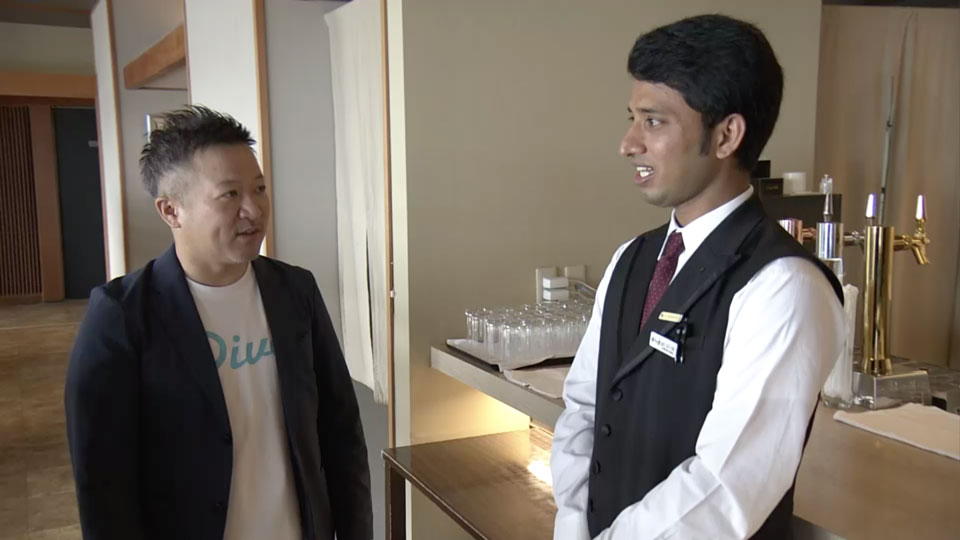
Suganuma Motoi is a foreign staffing service agent for Dive. He says ryokan like Kagaya that hire Specified Skilled Workers onto their staff are pioneers in the industry.
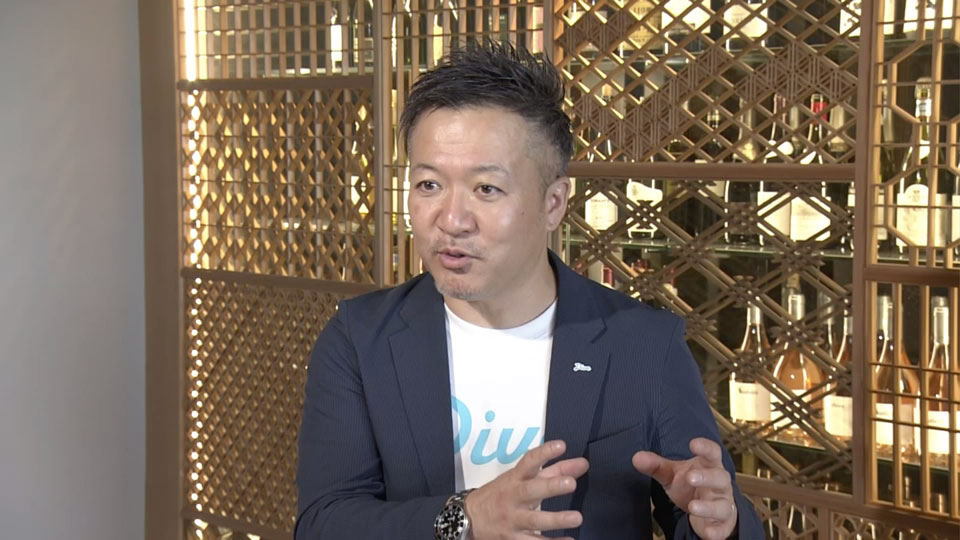
"Many owners hesitate because they think the procedure for hiring foreign staff is complicated and daunting," he says. "I think the fact that a famous inn like Kagaya is doing it will have a positive impact on the industry."
Foreign workers build the future
The presence of foreign workers like Khan appears to be helping change the perspective of guests.
"He was even more polite than the Japanese staff," says one guest.
"I want to improve my position here," says Khan. "I hope to become one of the top managers at Kagaya, so I have to do my best and keep learning."
The government says it hopes to restore foreign tourist numbers to pre-pandemic levels by 2025. Workers like Khan could be crucial to this goal. No matter how many extra visitors flow in, poor service due to staff shortages could undermine the country's hospitality culture, leading to smaller economic returns.
